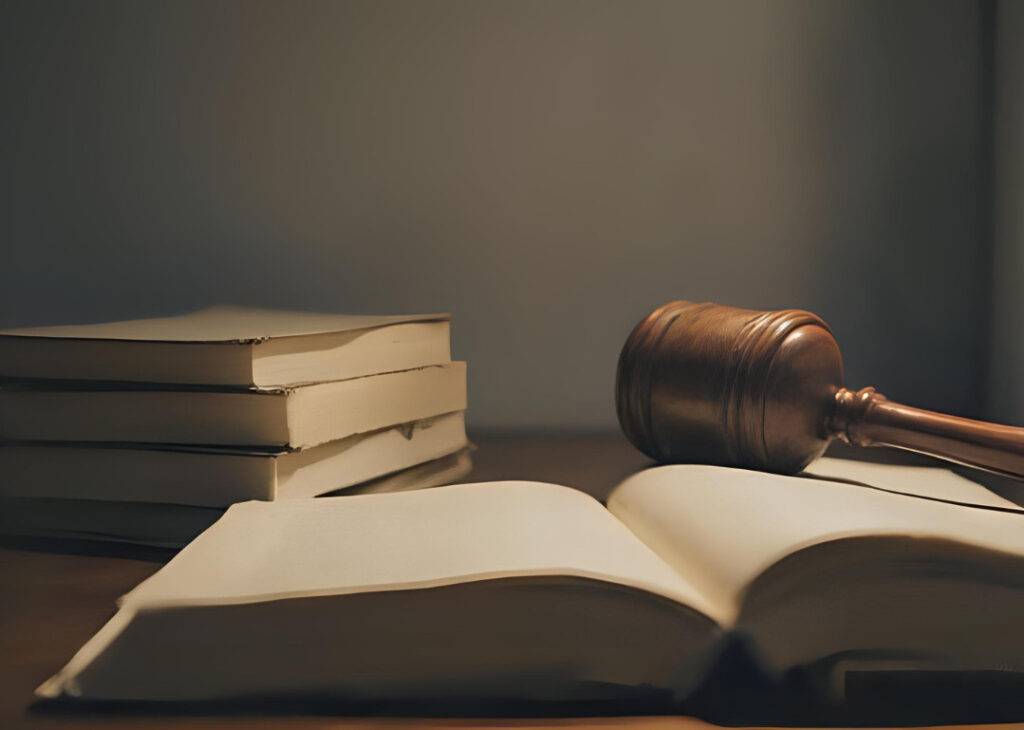In Georgia, personal injury claims often hinge on one crucial legal principle: negligence. Whether the case involves a car accident on I-285, a slip and fall in a Fulton County grocery store, or a dog bite in a suburban neighborhood, the injured party must prove that someone else’s careless or reckless behavior directly caused their harm. This isn’t just a matter of telling your side of the story, under Georgia law, specific elements must be established with credible evidence to succeed in court or during settlement negotiations.
O.C.G.A. § 51-1-2 defines ordinary negligence as the absence of “that degree of care which is exercised by ordinarily prudent persons under the same or similar circumstances.” But in practice, proving negligence means building a solid legal argument supported by documentation, testimony, and expert analysis. Plaintiffs must demonstrate four key elements: duty, breach, causation, and damages. Each must be proven for the claim to move forward, and failure on any point can derail the case entirely.
The stakes are significant. Insurance companies often look for any weakness in a claim to reduce payouts or deny liability. Missing medical records, unclear causation, or conflicting witness accounts can all be used to challenge your case. That’s why understanding exactly how to structure a negligence case under Georgia law is critical from the outset. This step-by-step legal guide breaks down how to prove negligence in a Georgia personal injury case, with a focus on what evidence is required, how the courts evaluate liability, and what injured individuals can do to strengthen their legal position from day one.

Step 1: Understand Georgia’s Legal Definition of Negligence
In Georgia, negligence is defined by O.C.G.A. § 51-1-2 as “the absence of the degree of care which is ordinarily exercised by a prudent man under the same or similar circumstances.”
To prove negligence, you must establish four elements:
- Duty of care
- Breach of duty
- Causation (both actual and proximate)
- Damages
Each element must be proven by a preponderance of the evidence, meaning it’s more likely than not that the defendant’s actions caused the harm.
If even one of these elements is missing, your negligence claim may fail entirely.
Step 2: Establish That the Defendant Owed You a Legal Duty
A duty of care arises when one party is legally obligated to avoid actions that could foreseeably harm another. In Georgia, the nature of this duty depends on the relationship between the parties.
Examples of Duties in Common Injury Cases:
- Drivers owe a duty to follow traffic laws and avoid reckless driving.
- Property owners must maintain safe premises for invitees (O.C.G.A. § 51-3-1).
- Doctors owe patients a professional duty of care.
- Product manufacturers must ensure their goods are not defective.
If you were injured on someone’s property, for instance, the landowner may owe you a different duty depending on whether you were an invitee, licensee, or trespasser.
In most personal injury cases, duty is not in dispute. The challenge often lies in the next step, proving breach.
Step 3: Prove That the Defendant Breached Their Duty
Breach occurs when someone fails to act in accordance with the legal standard of care. This is the most contested element in negligence litigation.
Common Examples of Breach in Georgia:
- A driver texting and running a red light
- A business failing to clean up a known spill
- A trucking company ignoring maintenance warnings
- A physician misreading test results
How to Prove Breach:
- Witness statements and affidavits
- Video surveillance (e.g., dash cams, store cameras)
- Photographs of hazards or crash scenes
- Incident and police reports
- Expert testimony (especially in professional malpractice)
The key is to show that a reasonable person would have acted differently under the same circumstances.
Step 4: Prove Causation (Actual and Proximate)
You must connect the breach to your injuries. Georgia law requires both types of causation:
- Actual cause (but-for causation): The injury would not have happened “but for” the defendant’s conduct.
- Proximate cause: The harm must be a foreseeable result of the defendant’s actions.
Examples:
- If a distracted driver hits you, the actual cause is the collision, and the proximate cause may be their failure to stop at a red light.
- If a grocery store leaves ice on the floor and you slip, both types of causation may be satisfied if no warning was provided.
What Helps Establish Causation?
- Accident reconstruction reports
- Medical records linking injury onset to the incident
- Expert witnesses explaining injury mechanisms
If an intervening or superseding cause broke the chain of causation (e.g., another driver’s action), the defendant may avoid liability.
Step 5: Show That You Suffered Legally Recognizable Damages
Without damages, you cannot win a negligence claim, even if the defendant was clearly careless.
Types of Compensable Damages in Georgia:
| Category | Examples |
| Economic | Medical bills, lost wages, rehab costs |
| Non-Economic | Pain and suffering, emotional distress, loss of enjoyment |
| Punitive (rare) | When conduct is reckless or malicious (O.C.G.A. § 51-12-5.1) |
How to Prove Damages:
- Medical records and bills
- Employment records or tax documents
- Life care plans for long-term injuries
- Psychological evaluations for emotional trauma
- Receipts for out-of-pocket costs
Documentation is critical. Courts and juries need proof, not just testimony, of your financial and personal losses.
Step 6: Use Negligence Per Se When Applicable
Under O.C.G.A. § 51-1-6, if someone violates a statute intended to protect the public and that violation causes harm, you may not need to prove breach, only that the violation occurred and caused your injury. This is known as negligence per se.
Examples:
- Running a red light (violation of traffic law)
- Serving alcohol to a visibly intoxicated person who causes a crash (Dram Shop Act)
- Failure to follow building codes
Negligence per se simplifies your burden of proof, especially when backed by police citations or regulatory reports.
Step 7: Gather and Preserve Key Evidence Immediately
The strength of your negligence claim depends on how quickly and thoroughly you collect evidence. In Georgia, much of this can disappear quickly, especially video footage or maintenance logs.
Preserve:
- Photographs of the accident scene or injuries
- Security or traffic camera footage
- 911 call transcripts
- Black box data (from trucks or cars)
- Witness contact info
- Medical records from Day 1
Use a Spoliation Letter:
Send a formal spoliation notice to the opposing party requesting they preserve relevant evidence. Georgia courts may sanction parties who fail to preserve key materials after receiving such notice.
Step 8: Watch for Comparative Negligence Arguments
Georgia follows a modified comparative fault rule under O.C.G.A. § 51-12-33. If you are partially at fault for your own injuries, your compensation is reduced accordingly.
Example:
- You are awarded $100,000 in damages.
- Jury finds you 20% at fault for texting while walking.
- You receive $80,000.
- If you are 50% or more at fault, you get nothing.
Always anticipate that the defense will try to assign partial blame to you. Counter this with strong evidence and expert testimony.
Step 9: Consider the Role of Multiple Defendants
Georgia law allows for joint and several liability in some cases, especially when multiple parties contribute to the harm.
Example:
- A bar overserves a drunk driver who later causes a crash.
- The drunk driver and the bar may both be held liable.
- Your recovery can come from one or both, depending on the verdict.
Naming all responsible parties increases your chances of recovering full damages.
Step 10: Comply with Georgia’s Statute of Limitations
Under O.C.G.A. § 9-3-33, you generally have two years from the date of injury to file a personal injury lawsuit. Miss this window, and you may lose your right to recover, no matter how strong your case is.
Exceptions:
- Discovery Rule: For latent injuries, the clock may start when you discovered (or should have discovered) the harm.
- Tolling: For minors or mental incompetency, the statute may be paused.
- Claims against government entities: May have much shorter notice periods (6-12 months).
Don’t wait, consult an atlanta personal injury lawyer early to ensure your rights are protected.
Step 11: Use Expert Testimony to Strengthen Your Case
Experts are often essential to proving breach, causation, and damages, especially in complex or high-value cases.
Common Experts in Georgia Injury Cases:
| Type | Role |
| Medical Experts | Link injury to the incident, explain prognosis |
| Accident Reconstructionists | Recreate crash dynamics |
| Life Care Planners | Project long-term costs |
| Economists | Quantify lost earnings |
| Safety Engineers | Explain code or regulation breaches |
Expert testimony adds credibility and clarity, especially when facing defense attempts to undermine your claims.
Step 12: Prepare for Discovery, Depositions, and Trial
If your case proceeds to litigation, expect a formal discovery process involving:
- Interrogatories
- Requests for production
- Depositions
Use this time to uncover:
- Defendant’s version of events
- Internal safety records
- Insurance coverage details
- Prior complaints or lawsuits
Depositions are particularly useful for catching defendants in inconsistent statements, which can sway settlement negotiations or a jury at trial.
A solid pre-trial strategy improves both trial success and settlement leverage.
Step 13: Be Ready to Settle, or Take It to Court
Most Georgia personal injury cases settle outside court. But your willingness and ability to go to trial often determines how strong your settlement offer will be.
Trial Checklist:
- All four negligence elements proven
- Persuasive evidence and expert testimony
- Rebuttal to comparative fault arguments
- Clear narrative of your damages and suffering
If your case involves wrongful death (O.C.G.A. § 51-4-1), surviving family members may also testify to the emotional and financial impact.
Whether you settle or go to trial, preparation is the key to winning your claim.
Final Thoughts
Proving negligence in a Georgia personal injury case is a rigorous legal process that demands early action, detailed evidence, and strategic thinking. Every element, from duty to damages, must be clearly established under Georgia law. Weakness in any one area can derail your entire claim.
Whether you’re facing hospital bills, lost income, or long-term injuries, success hinges on working with a legal team experienced in Georgia’s civil litigation process. From preserving evidence to presenting expert witnesses, the right steps can turn a traumatic event into a just recovery.
If you’ve been injured due to someone else’s negligence, contact us for a free consultation today. Our Georgia personal injury attorneys are ready to help you understand your rights and fight for the compensation you deserve.



